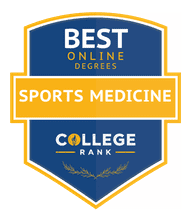Why Earn a Kinesiology Degree?
Concordia University Chicago’s Bachelor of Science in Kinesiology is designed for busy adults ready to grow their careers in health, fitness or wellness.
BS Kinesiology, Class of 2019

Kinesiology Career Outlook
A bachelor’s degree in kinesiology opens the door to a wide range of careers that are seeing steady job growth.
Because the degree blends biology, physiology, biomechanics and psychology, kinesiology graduates are well-equipped for advanced studies in medicine, athletic training, physical therapy, occupational therapy or chiropractic care — all of which are in increasing demand.
Statistics can be found at the U.S. Bureau of Labor Statistics.
Design and implement fitness programs for patients recovering from illness or managing chronic diseases such as heart disease or diabetes. Often work in hospitals, rehabilitation centers or wellness facilities.
View the salary range
Develop training plans to improve athletic performance for individuals, teams or schools. Many work in colleges, universities or professional sports, but private practice is also common.
View the salary range
Support licensed physical therapists or occupational therapists by helping patients with exercises, monitoring progress and maintaining therapy equipment.
View the salary range
Work with individuals or groups to set fitness goals, create exercise plans and promote healthier lifestyles. Health coaches may also address behavior change, nutrition and stress management.
View the salary range
Develop and manage employee health programs to improve wellness and reduce healthcare costs, including fitness challenges, health screenings and stress reduction initiatives.
View the salary range
Plan and oversee community fitness, sports and wellness programs, managing staff, budgets and events to promote public health.
View the salary range

Curriculum
- Required Core Courses in Kinesiology: 36 credits
- Total Program Credits: 120 credits
Lock in Your Tuition!
As long as there are no interruptions in your course of study, we guarantee your tuition will remain the same and never increase while earning this degree. This guarantee ensures a stable and predictable investment in your education.
Don’t miss out on our Tuition Guarantee – enroll today!
- A completed application for admission to the Accelerated Degree Programs.
- Submission of official transcripts from ALL colleges or universities attended, including records of good standing.
- Final high school transcript with graduation date.
*Applicants will be notified of admission decisions generally within 48 hours after submitting all required documents.
The bachelor’s degree program is designed to prepare students for graduate studies and professional certifications.
Get Program Details
Student Testimonials
“The professors are super helpful. Two of my professors who were very meaningful to me were also athletic trainers. They would meet every few weeks and talk about the coursework and my job.Get to know your professors. They can help you with day to day or even land a job. Send an introductory email so stand out as a student. You can get to learn about how they are experts in their field.”
“Make that commitment that once you’re going to start the program that you are going to be dedicated to completing it and finishing it.”
“Be committed to see it through and give 100% because that’s really how you’re going to be able to take what you learn and apply it into a career setting.”
“It’s hard to get your masters and be a mom, to be working full time. But it’s a great sense of ‘yeah I did that, while working a full time job, it’s rewarding”.I would say Concordia and getting my masters was the jumpstart of what made me great today.”
“CISSN I passed with flying colors and I got over a 90%.” Getting your Masters degree prepares you to be an auto mechanic. When you get your Masters you learn how to build the car so it teaches you how to understand the scientific principles very deeply that surround these certifications.
I will tell you that it improved my practice a hundred times over just having a really strong grip on the scientific foundations that builds the certification. I was balancing 5 kids and owning a gym. The professors are good at working with adults who are working. The program is entirely doable and designed for working adults and that’s why you choose asynchronous online education.
A big thank you to all the amazing professors I had in my time at Concordia, I will tell you I really got my money’s worth out of that program. You are going to get out what you put in. If you put in the work you will reap the reward. You will make the connections you need to make. You will learn what you need to learn to be a better practitioner”


